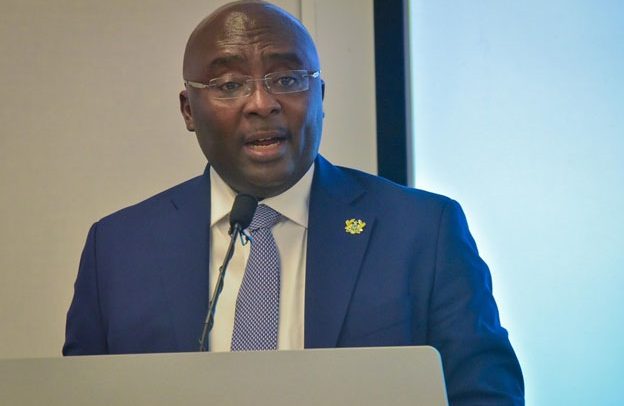Vice President Mahamudu Bawumia
VICE-PRESIDENT Mahamudu Bawumia says he cannot understand why poverty is still endemic among cocoa farmers in spite of the phenomenal growth in the usage of the crop (i.e. from food products to cosmetics and pharmaceuticals).
This is because it has created wealth along the entire supply chain.
He made the observation at a two-day stakeholder engagement in Accra on farmers’ income.
The engagement began yesterday for key and influential stakeholders in Ghana and Cote d’ Ivoire – the two major cocoa producing countries in the world – producing over 65 per cent of the cash crop.
Statistics
Addressing the forum, Dr Bawumia used a 2017 data from Fairtrade which suggests a living income of about $6,133 per year or $511.08 per month to back his claim, and that for a medium household size of 6-8 that amounts to a daily income between $2.63 and $2.12.
The same source, according to him, suggested that the Ivorian cocoa farmer earned $0.93 per day and an approximate Ghanaian farmer’s per capita daily income of $0.40-$0.45 from cocoa, which represents nearly two-thirds of their household income.
In addition to low incomes, he noted that cocoa farmers face a number of other challenges.
In a situation where farmers cannot recover their marginal cost of higher output, he indicated that they lose interest in keeping with the demands of good agricultural practices, making productivity suffer.
He said he was aware of the fact that Ivoirians had also adopted similar approaches to promote sustainability of the industry.
Grim side
He said so far evidence suggested that wealth distribution is uneven along the supply chain, whiles poverty levels among cocoa farmers – who are at the root of both the supply and value chain – continue to raise concerns.
For him, the irony was that “the primary risk takers are also the helpless price takers.”
In spite of these, he noted “farmers also spend the longest amount of time in the active labour force”, indicating that “most cocoa farmers start farming in their 20s or early 30s, and continue well into their 70s, and in most cases they retire without any official pension.”
Solution
To this end, he said “our governments (Ghana and Cote d’Ivoire) have agreed that we offer the farmer a fair share of the wealth that the industry generates”.
“We must do this for good reason since the social and economic status of the average cocoa farmer in Ghana and Cote d’Ivoire is not attractive to the next generation of cocoa farmers,” he added.
Aside that he stressed “this puts the industry at a substantial risk to the national economy both in its contribution to employment and to GDP. The fact that the majority of farmers are unable to cater adequately for their family, beyond mere poverty existence, is simply unconscionable.”
By Charles Takyi-Boadu, Presidential Correspondent


